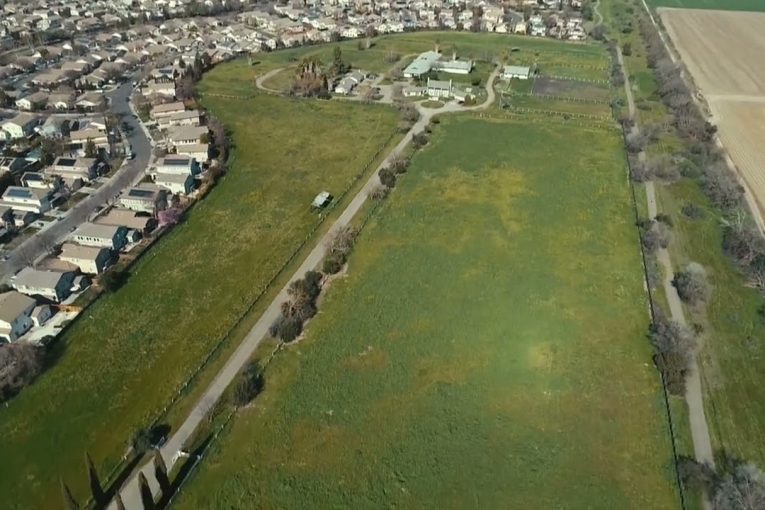
 By David M. Greenwald
By David M. Greenwald
Executive Editor
Davis, CA – In late September, developer David Taormino filed a lawsuit against the city, on behalf of Palomino Place, LLC, in Yolo County Superior Court seeking to compel the City of Davis to comply with its legal obligations under the Housing Accountability Act, Permit Streamlining Act, and the California Environmental Quality Act.
In a letter dated October 13 from City Attorney Inder Khalsa, sent late on Friday, the city responded to attorney Matt Keasling, who represents Taormino on the Palomino Place Project.
The city “disagrees” with the notion that they have “failed to process the Project as required under the Permit Streamlining Act and California Environmental Quality Act.”
Taormino in his petition argued that Davis is refusing “to process a housing development project in which 20% of the homes will be for low-income households.
“I really wish it would not have come to this,” said plaintiff and project developer David Taormino. “My only desire has been to build housing for people working in Davis and for young families in order to put kids back into our schools.”
The city has maintained from the start, “Mr. Taormino filed his application for a tentative subdivision map, the subject of his action, on August 9, 2023.”
At the time, the city deemed the application to be incomplete and responded with a September 9 letter.
On September 15, Taormino’s legal counsel sent a letter to the City stating his  intention to proceed with his project under “Builders’ Remedy” without seeking any legislative approvals for his project.
intention to proceed with his project under “Builders’ Remedy” without seeking any legislative approvals for his project.
In the October letter, the City believes that they “did not receive a formal application that requested any quasi-judicial entitlements, a necessary precursor to review under the Permit Streamlining Act, until August 9, 2023.”
Until that point, all earlier applications were “solely for legislative changes,” which the city argues “are not subject to the Permit Streamlining Act or the one year timeline in CEQA.”
The city further notes “the Permit Streamlining Act does not apply to legislative land use decisions, including zoning and general plan amendments.”
A court ruled in a previous case: “[t]he Permit Streamlining Act cannot be used to compel legislative changes to a zoning ordinance or general plan because the act is limited to projects that are adjudicatory in nature.”
Further, “we note that the Permit Streamlining Act’s time limits also may not be used to compel an agency to commence CEQA review or to make a CEQA determination with respect to a legislative decision. CEQA’s time limits are directory, not mandatory.”
The city’s position is that prior to August 9, Taormino was “requesting solely legislative changes for the Project.”
Indeed, the city points out, “The August 9 submittal included the previously requested general plan amendment and zoning amendment, as well as one quasi-judicial entitlement—namely, a tentative subdivision map.
“Despite the continuing presence of legislative entitlement requests that put this application outside of the requirements of the Permit Streamlining Act (approval of an otherwise quasi-judicial entitlement that is contingent on legislative changes is inherently a legislative action), the City notified your client that the application was incomplete on September 8, 2023.”
In other words, the City argues, it “has actually gone above and beyond legal requirements with respect to your client’s August 9 submittal; the City’s response was actually provided to your client a week before you sent your letter to the City purporting to withdraw your client’s application for the legislative changes.”
They continue, “Until today,” your client has failed to provide the City with the necessary additional information needed to continue processing the application, choosing instead to file a lawsuit against the City alleging delays.”
The project attempted to convert to a “Builder’s Remedy” project in April after the city’s Housing Element was rejected and HCD determined that the city was now in Builder’s Remedy status.
However, the city determined that the Palomino application was not “legally sufficient” to be considered a “preliminary application.”
The city argues that “the proposal still included solely legislative changes, rendering it ineligible for review under the Permit Streamlining Act.”
Finally, the City determined that the application was not eligible for processing under the so-called “Builder’s Remedy” because “the City determined that deed- restricted ADUs could not be used to satisfy the affordable housing requirements of applicable state law or the City’s inclusionary housing ordinance, as I explained in more detail in my letter to you dated June 23, 2023.”
The city concludes: “For all of these reasons, the City has treated the August 9 submittal, rather than the earlier submittals, as the relevant ‘application’ for our review and processing. City staff has been and continues to be diligently processing your client’s application in a timely manner, exceeding what we believe are the legal requirements.”

